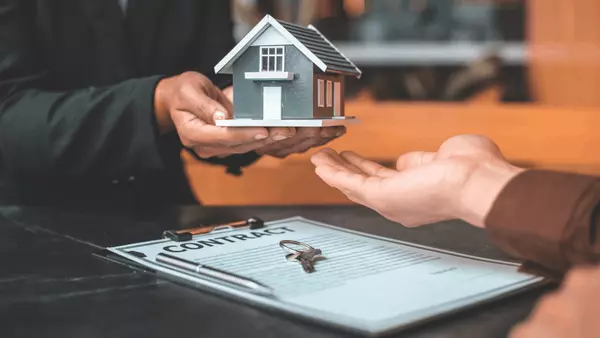Home Inspections For Sellers: How To Prepare

Preparing for a home inspection is a crucial step in the selling process. A successful inspection can help ensure a smoother sale and potentially increase your home's value. By taking the time to prepare your home, you can address any issues before they become deal-breakers.
Here’s how you can get your home ready for inspection.
Why Prepare for a Home Inspection?
Home inspections are a standard part of the home-selling process. They provide buyers with an unbiased assessment of the property's condition. Preparing for the inspection can:
Ensure a Faster Sale: Addressing issues beforehand can speed up the selling process.
Avoid Surprises: Fixing problems in advance prevents unexpected findings that could delay the sale.
Increase Buyer Confidence: A well-maintained home reassures buyers that the property is in good condition.
Exterior Checklist
The exterior of your home is the first thing an inspector will see, so it’s essential to make a good impression.
Roof and Gutters
Clean and Repair: Remove debris from gutters and downspouts. Check for and repair any damage to the roof, such as missing shingles or leaks.
Landscaping
Tidy Up: Trim bushes, mow the lawn, and clear away any debris or clutter. Ensure that trees and shrubs are not overhanging or touching the house.
Paint and Siding
Touch Up: Repair any damaged siding and touch up peeling paint. A fresh coat of paint can make your home look well-maintained.
Foundation
Inspect: Check for any cracks or signs of water pooling around the foundation. Addressing these issues early can prevent bigger problems down the line.
Interior Checklist
The interior of your home needs to be just as well-maintained as the exterior.
Plumbing
Fix Leaks: Check for and repair any leaks in faucets, showerheads, and pipes. Ensure that all drains are unclogged and that water pressure is adequate.
Electrical
Test Outlets: Ensure that all electrical outlets are working correctly. Replace any burnt-out bulbs and check that all electrical systems are up to code.
HVAC
Clean Filters: Replace HVAC filters and ensure the system is functioning efficiently. Schedule a maintenance check if needed.
Appliances
Ensure Functionality: Verify that all appliances are in good working condition. Provide manuals and warranties for any appliances that will stay with the home.
Key Areas to Focus On
Some areas of your home may require extra attention.
Attic and Basement
Check for Issues: Inspect these areas for signs of moisture, pests, and insulation problems. Ensure proper ventilation in the attic and address any foundation concerns in the basement.
Bathrooms
Inspect Fixtures: Ensure that toilets, sinks, and tubs are functioning correctly. Check for leaks and water damage around these fixtures.
Kitchen
Ventilation and Appliances: Make sure the kitchen has proper ventilation and that all appliances are in working order. Clean the oven and range hood.
Garage
Organize: Ensure the garage door opens smoothly and that the space is clean and organized. Address any safety concerns, such as exposed wiring or hazardous materials.
Documentation
Having proper documentation ready can streamline the inspection process.
Manuals and Warranties
Provide Information: Gather manuals and warranties for appliances and systems in the home. This helps the inspector and provides the buyer with valuable information.
Receipts for Repairs
Show Proof: Keep receipts for any recent repairs or maintenance. This demonstrates that you’ve taken good care of the home.
Upgrades and Renovations
List Improvements: Document any upgrades or renovations made to the property. This can highlight the value-added features of your home.
Final Touches
Small details can make a big difference.
Clean Thoroughly
Deep Clean: Ensure your home is clean from top to bottom. A spotless home gives a good impression and makes it easier for the inspector to do their job.
Declutter and Organize
Tidy Up: Remove any unnecessary items and organize spaces. This makes your home appear more spacious and well-maintained.
Accessibility
Make it Easy: Ensure the inspector can access all areas of your home, including the attic, basement, and any crawl spaces.
Day of Inspection
On the day of the inspection, there are a few final steps to take.
Time
Be Ready: Make sure your home is ready and accessible at the scheduled inspection time.
Pets
Secure or Remove: Keep pets secured or take them off the property to avoid any disruptions.
Utilities
Turn On: Ensure that all utilities are turned on so the inspector can check the plumbing, electrical, and HVAC systems.
Conclusion
Preparing for a home inspection may require some effort, but it can significantly impact the sale of your home. By taking the time to address potential issues and present your home in the best possible light, you can facilitate a smoother, faster sale and potentially increase your home's value. Remember, a well-prepared home inspection reflects well on you as a seller and helps build trust with potential buyers.
Categories
- All Blogs (289)
- All about Boston (49)
- Buyer Tips (135)
- December Home Maintenance and Safety Tips (1)
- FUN Facts (10)
- Home Décor Ideas (25)
- Home Improvements (1)
- Home Maintenance and Safety Tips (14)
- Infographics (10)
- Investing (78)
- Monday Motivation (6)
- Real Estate (83)
- Seller Tips (101)
- Storage and Organization (8)
- The Open Door Podcast (2)
- The truth about Real Estate (135)
- Tips (83)
Recent Posts











"My job is to find and attract mastery-based agents to the office, protect the culture, and make sure everyone is happy! "
